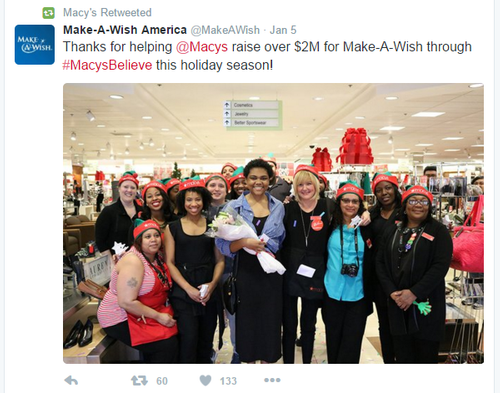Teaming up with another business can save money on marketing costs, increase the effectiveness of your efforts, widen your audience and keep your current base engaged and loyal. It’s a tactic used by the biggest brands in the world, yet it’s also an excellent way for freelancers and small businesses to expand and grow without breaking the bank.
But of course, there’s plenty to consider and plan for before you link yourself with an entity you have no control over. Here’s what you need to know.
Best practices for a winning pairing
When done thoughtfully and honestly, collaborating with another brand benefits both parties and their respective customers. However, mishandling the process could lower reputations and sales all while driving customers away. If there’s money being exchanged or your plans are complex, make sure you discuss the agreement with a lawyer and/or hire a neutral third party to hash out the details. And, stick to these best practices.
Stay true to your values
Any business you consider teaming up with should have similar values to your brand’s—or at least compatible ones. For example: If you leverage your eco-friendly practices in your marketing, partnering with a brand whose carbon footprint resembles the Grand Canyon is a no-go.
Spend time researching prospective partners
Do they utilize effective marketing tactics? Have loyal, engaged customers? What’s their reputation in their industry? How do they utilize social media? Dig through their content marketing and online reviews, scroll through feeds, snoop LinkedIn profiles and talk to people about their experiences with the business and the people behind it.

Get to know the people you’ll be working with
Before you start pitching ideas, take time to get a feel for the people behind the business. Chat with the owner or head of marketing, reel them into your network and see who they are and how they work. Even if two brands are highly compatible, the people working for the brands might not be. And that could be a recipe for disaster.
Be prepared, honest and flexible when you make your initial approach
You should be able to clearly state how a collaboration will benefit the other business as well as explain what perks you’re expecting out of the deal. Everything after that should be a team effort. Sure, have some ideas in mind, but listen to the other party and work together to come up with a plan.
Need to brush up on your communication skills before you start approaching people? Check out this exclusive Biz.me post: Lead, network, grow: 6 communication skills every entrepreneur should master.
Inspired ideas for mutual growth
There are endless ways to collaborate with other brands, no matter what you sell. GoPro and Red Bull—which sell very different products—launched a super-successful cross-promotion campaign by capitalizing on their statuses as lifestyle brands. Bonne Bell and Dr Pepper came together to create a co-branded lip balm that was a huge hit. As a small business, you might not be able to go that big, but there are plenty of options.
Cross-promote each other on social media
Do you have an engaged list of followers? Find a brand that does as well and share each other’s posts, create guest posts, talk and leave comments and give shoutouts. Or, take over someone’s account and let them take over yours. You’ll not only improve visibility but increase your follower count and potentially earn new customers.

Make a product (or service) together
Do you have an idea for a new product or service? Team up with another brand to share the work and the rewards. Collaborative product lines—like that Dr Pepper lip balm or service packages created by two freelancers—reel in new customers and meets even more of the needs and wants of your current customers. If an entirely new product isn’t possible, consider creating a limited-edition gift box that highlights both brand’s best-sellers. Then, promote (and sell) it together.
Save money by sharing
Do you need space to sell products, or have space for another brand to sell theirs? Pop-up shops are hugely popular and benefit both brands, increasing sales and exposure to new customers. Your base will show up to shop, and their base will get to see your products firsthand (or vice versa). Not feasible? Consider pooling funds to create bigger marketing campaigns, giving access to equipment, sharing office space or hosting a customer appreciation event together.

Expand your content marketing creatively
Do you want more readers and potential customers? Of course. Partnering up with another business for newsletters or guest blog posts is great, but think bigger. Get together with brands who sell complimentary, but not competing, products and create gift guides together. Go through both brand’s blogs and use the posts to craft a collaborative e-book. Or, write something entirely new together.
Send customers each other’s way
Do you want a big bang for practically no bucks? Get friendly with a complementary business and start referring customers. For example: A family-owned hardware store could send customers interested in plants to a local nursery, and the nursery could send customers doing hefty landscaping work to the hardware store. But it can also be as simple as a local hotel partnering with a local restaurant and referring travelers to the best food in town.

Interested in even more cross promotion ideas, like newsletters, working with charities and teaming up for sales and coupons? Check out this exclusive Biz.me post: Cross promotions: partner up and expand your base. Curious about even more ways to grow? Read The sky’s the limit: strategies to expand your business and Influencer marketing 101: up sales, visibility and followers.




